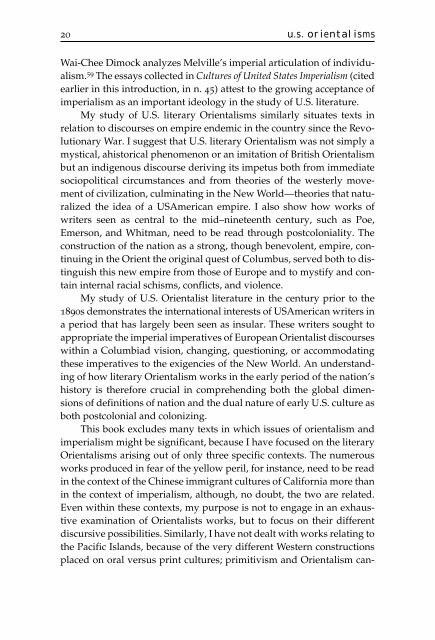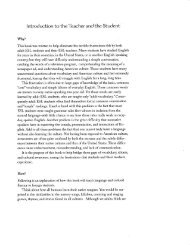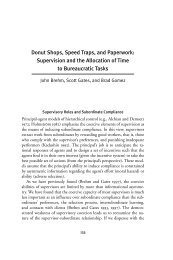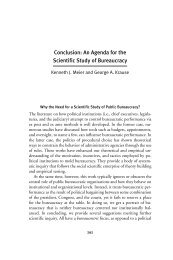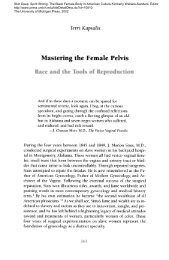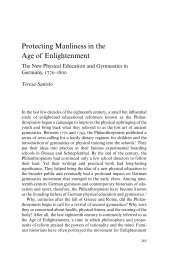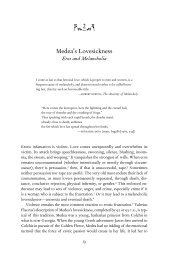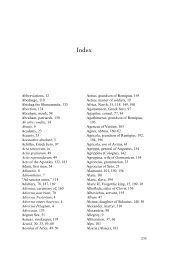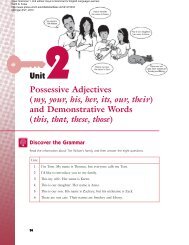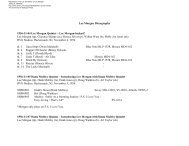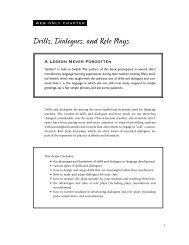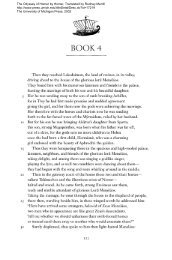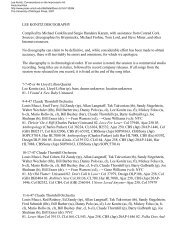Introduction - The University of Michigan Press
Introduction - The University of Michigan Press
Introduction - The University of Michigan Press
Create successful ePaper yourself
Turn your PDF publications into a flip-book with our unique Google optimized e-Paper software.
20 u.s. orientalisms<br />
Wai-Chee Dimock analyzes Melville’s imperial articulation <strong>of</strong> individualism.<br />
59 <strong>The</strong> essays collected in Cultures <strong>of</strong> United States Imperialism (cited<br />
earlier in this introduction, in n. 45) attest to the growing acceptance <strong>of</strong><br />
imperialism as an important ideology in the study <strong>of</strong> U.S. literature.<br />
My study <strong>of</strong> U.S. literary Orientalisms similarly situates texts in<br />
relation to discourses on empire endemic in the country since the Revolutionary<br />
War. I suggest that U.S. literary Orientalism was not simply a<br />
mystical, ahistorical phenomenon or an imitation <strong>of</strong> British Orientalism<br />
but an indigenous discourse deriving its impetus both from immediate<br />
sociopolitical circumstances and from theories <strong>of</strong> the westerly movement<br />
<strong>of</strong> civilization, culminating in the New World—theories that naturalized<br />
the idea <strong>of</strong> a USAmerican empire. I also show how works <strong>of</strong><br />
writers seen as central to the mid–nineteenth century, such as Poe,<br />
Emerson, and Whitman, need to be read through postcoloniality. <strong>The</strong><br />
construction <strong>of</strong> the nation as a strong, though benevolent, empire, continuing<br />
in the Orient the original quest <strong>of</strong> Columbus, served both to distinguish<br />
this new empire from those <strong>of</strong> Europe and to mystify and contain<br />
internal racial schisms, conflicts, and violence.<br />
My study <strong>of</strong> U.S. Orientalist literature in the century prior to the<br />
1890s demonstrates the international interests <strong>of</strong> USAmerican writers in<br />
a period that has largely been seen as insular. <strong>The</strong>se writers sought to<br />
appropriate the imperial imperatives <strong>of</strong> European Orientalist discourses<br />
within a Columbiad vision, changing, questioning, or accommodating<br />
these imperatives to the exigencies <strong>of</strong> the New World. An understanding<br />
<strong>of</strong> how literary Orientalism works in the early period <strong>of</strong> the nation’s<br />
history is therefore crucial in comprehending both the global dimensions<br />
<strong>of</strong> definitions <strong>of</strong> nation and the dual nature <strong>of</strong> early U.S. culture as<br />
both postcolonial and colonizing.<br />
This book excludes many texts in which issues <strong>of</strong> orientalism and<br />
imperialism might be significant, because I have focused on the literary<br />
Orientalisms arising out <strong>of</strong> only three specific contexts. <strong>The</strong> numerous<br />
works produced in fear <strong>of</strong> the yellow peril, for instance, need to be read<br />
in the context <strong>of</strong> the Chinese immigrant cultures <strong>of</strong> California more than<br />
in the context <strong>of</strong> imperialism, although, no doubt, the two are related.<br />
Even within these contexts, my purpose is not to engage in an exhaustive<br />
examination <strong>of</strong> Orientalists works, but to focus on their different<br />
discursive possibilities. Similarly, I have not dealt with works relating to<br />
the Pacific Islands, because <strong>of</strong> the very different Western constructions<br />
placed on oral versus print cultures; primitivism and Orientalism can-


